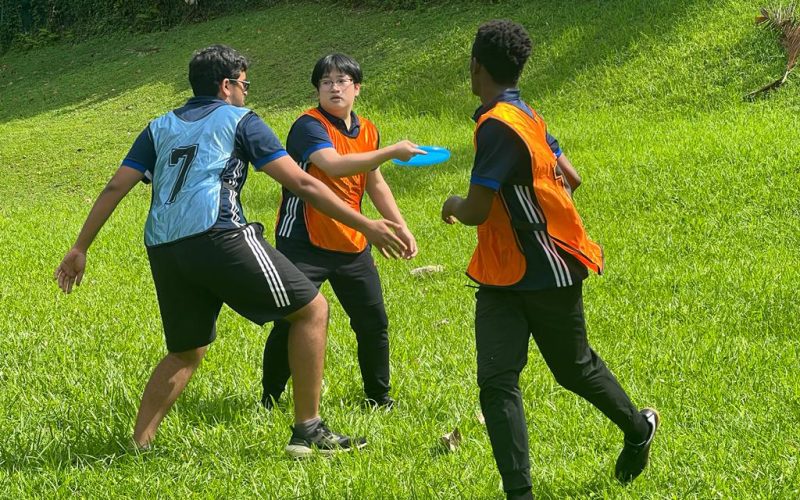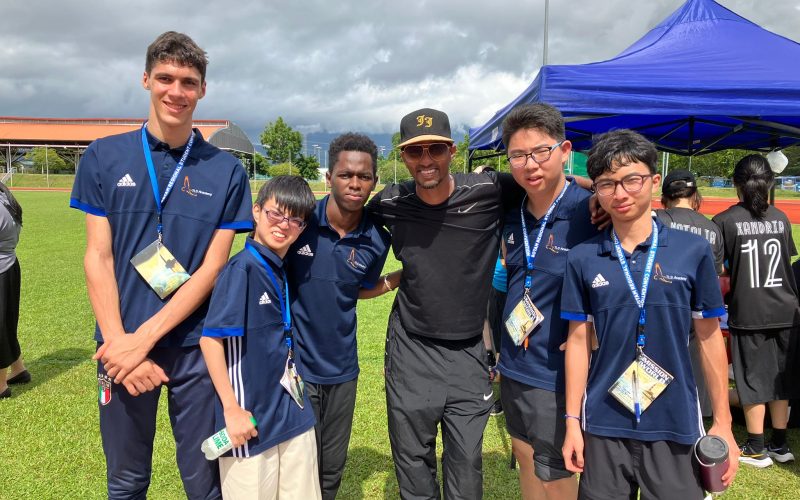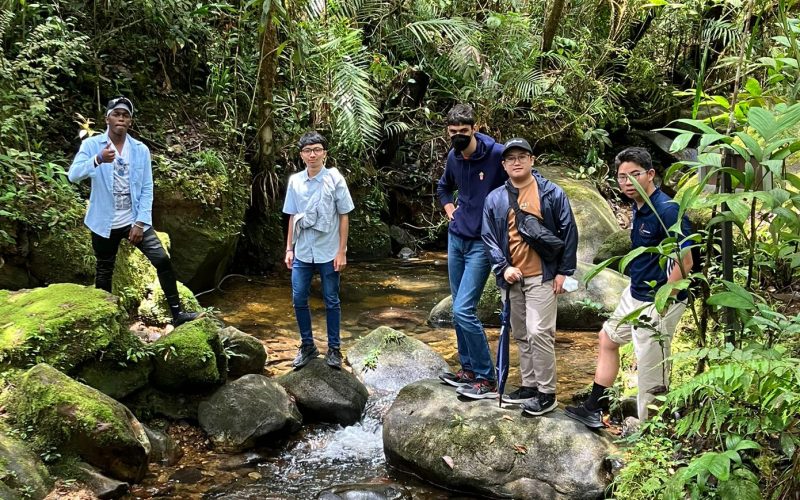A new stage of life begins for students who transition from primary to secondary school. Students enter a bigger learning ground to prepare themselves for higher education in the future. With a new school environment to adapt to and more subjects to learn, they will also begin to explore different methods to fulfil their dreams and aspirations.
In this article, we will learn 7 ‘unconventional’ study tips to help students in secondary school.

General Overview on Private Education in Singapore
The educational system in Singapore plays an essential role in identifying and nurturing talents from students. It is regarded as one of the best academic systems globally and has received acknowledgment and praise from all around the world. Different schools produce different kinds of students. Notably, private education in Singapore offers a more comprehensive and international curriculum that focuses on internationalism and global learning.
Overview of the Private Education Sector in Singapore
Private education in Singapore has its own approach to fostering a holistic educational experience. Private schools achieve academic excellence through a globally recognized curriculum that focuses on helping students learn the academics required for their future pathways.
Private education institutions offer diverse programs and electives. In Singapore, secondary education is essential to introduce students to challenging and specialized subjects that provide a solid intellectual basis after they leave school.Currently, there are more than 300 private education institutions (PEIs) serving more than 150,000 students in Singapore. These institutions provide diverse curriculum choices that the students can choose from. While some have distinctive programs and others might provide many educational pathways, all private schools seek the same goal, and that is to maximize each student’s potential.
The ‘Unconventional’ Study Tips for Secondary School Students
Finding the ideal balance between focus, comprehension, memory, and rest is the key to effective study habits. However, with the constant pressure to become better students in secondary school, studying might turn out to be stressful for some students. This is the reason why students are encouraged to follow healthy studying habits to remain inspired and motivated.
Listed are some ‘unconventional’ study tips to help students ace secondary school in the most achievable way:

Set Up a Realistic Study Plan
Research shows that top students spend less time studying and they always find ways to study more efficiently. Instead of spending more time doing low-intensity study sessions, a student can create a realistic and shorter study plan to help him/her study in less time. A study plan is an efficient study chart or schedule that allows students to successfully manage their time for well-defined learning activities, goals, and study chores.
Study plans are especially helpful for secondary school students to be aware and responsible for their learning outcomes. Through this, students can keep track of how to spend their time in ensuring they finish homework assignments, prepare for tests, and understand the information they are learning at school.
Discover A Personal Learning Style
Learning styles allow students to properly understand the specific techniques that can aid them in processing and comprehending knowledge most efficiently. This is the reason why discovering a personal learning style in secondary school is essential.
There are five popular learning styles to consider when gauging what is most effective for students to acquire information and develop competencies.
- Verbal learners use words in speech and writing to process information. These students frequently have excellent verbal and written communication skills as well as strong self-expression.
- Spatial-visual learners prefer to process information through observation. Typically, visual aids or cues like photographs, diagrams, graphs, and charts help students acquire concepts efficiently.
- Auditory learners prefer to talk aloud and listen to material as they process it. These students frequently learn best by actively participating in discussions on the subjects they are studying.
- Logical learners digest knowledge by solving challenging problems, coming up with ideas, and using a linear manner of thinking. These students often learn best by participating in practical projects with well-defined objectives and procedures.
- Kinesthetic learners process information through movement. These students frequently like interactive educational resources.
End a Study Session with a Workout
Another strategy for secondary school students to remember newly acquired information is to exercise four hours after a study session. According to a study published in Current Biology (2016), exercising after learning may boost your recollection of new information, but only if done in a precise time window.
Learn by Teaching Others
Teaching others simply makes one more eager and motivated to learn the studying materials. Hence, to facilitate better learning in secondary school, a student can teach the material to other students. This strategy takes lots of effort, however, it can also yield the best results, especially since the anticipation of really instructing and guiding someone will probably give the biggest increase in motivation to learn.
Psychologists at the University of California have found that verbally explaining a topic makes it easier to grasp knowledge and information. Explaining to others improves learning because it invokes an intuitive sense and motivates the students to learn faster to properly explain to others.
Grab a Cold Shower
Taking cold showers has positive effects on one’s mental health. Indeed, a long study session will likely leave a student exhausted and stressed. This is why cold showers are recommended to help ease stress and anxiety to make a person feel more energized and have a clearer mind.
Regular cold showers have been proven in studies to strengthen the immune system. It increases the level of endorphins, or the feel-good hormones, in the brain which help ease depression and anxiety symptoms. So, a cold shower might also temporarily divert a student’s attention from any worries or fears he/she may be experiencing. The time he/she spends concentrating on how the cold water feels on his/her body may serve as a mindfulness exercise that helps stay focused.
Break Up Large Pieces of Information into Chunks
Acquiring large pieces of information can be a heavy process for one’s mind. Therefore, breaking information into manageable chunks and mastering each one separately is an effective learning strategy in secondary school.
Chunking is an approach of organizing information to make better use of short-term memory. Large bits of information are broken up into units, also known as chunks, through the process of chunking, thereby minimizing the number of “things” a person needs to remember. Each ‘chunk’ is an organized group of information units, like words, patterns, numbers, or phrases, which are simpler to memorize and learn.
Research by Furukawa and his colleagues also concluded that chunking helps students achieve higher test performances as learning concepts and understanding principles are easier through this approach.
End the Study Session with a Reward
Lastly, but definitely the best tip, is to reward oneself after a long study session. Every student puts in a lot of effort when studying to become a successful graduate to have a rewarding future.
Rewards increase a person’s energy levels. According to research, the body releases dopamine whenever a person receives a reward, which makes him/her feel good and motivated to repeat the rewarding action. The same concept is also applied in operant conditioning, wherein a person is more inclined to repeat a behavior when it results in a positive outcome. This is also called positive reinforcement.
Students can benefit from positive reinforcement by rewarding themselves whenever they believe they have achieved a goal, successfully finished a project, or have simply given a task their best effort. Rewarding a student after a productive study session will not only provide him/her with mental care but will also inspire to study properly.

Why are Study Skills Important?
Study skills are essential to increase a student’s self-worth, competence, and confidence. By developing good study techniques in secondary school, one can reduce the amount of time he/she spends studying and frees up more time for other activities. More importantly, effective study skills help lessen the stress associated with deadlines and tests.
Ace Secondary School with The Right Study Techniques
These 7 ‘unconventional’ study tips are some of the most effective techniques that can help a student perform better in secondary schools. Undoubtedly, learning in secondary school can be different for every student. By developing the right study skills that match their learning approach, the students cultivate a passion for learning that will improve the quality of their well-being, motivation, competence, and self-esteem in time.
At TLS Academy, helping students learn in a way that is best for them has always been the priority to produce quality graduates. Contact us now to find out more!
